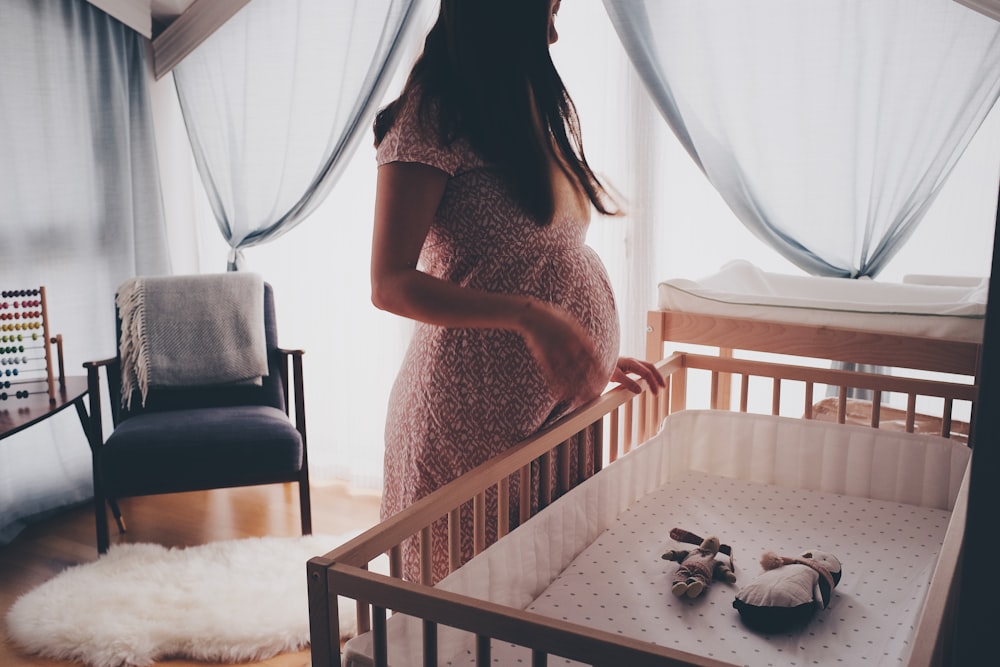During pregnancy, caring for your health and well-being is essential — not just for you, but also for your baby. Part of maintaining good health is getting plenty of rest each night. However, over the course of a pregnancy, many women experience changes in their sleep habits. As part of this, there is an increased risk for developing obstructive sleep apnea during pregnancy.
Left untreated, obstructive sleep apnea can lead to a variety of significant health complications. Here’s a closer look at how this condition develops during pregnancy and what new research reveals about why it should be treated.
How Sleep Apnea Develops During Pregnancy

A variety of factors can make pregnant women more at risk of developing obstructive sleep apnea. According to UT Southwestern Medical Center, a pregnant woman’s expanding uterus can reduce the functional capacity of the lungs by as much as 20 percent. At the same time, oxygen consumption increases by 20 percent during pregnancy, meaning that a pregnant woman needs to take more breaths per minute than normal. This alone makes it harder for the body to get sufficient oxygen during sleep.
Increased levels of the hormone progesterone (which is produced at higher rates during pregnancy) can also cause nasal congestion, which can result in temporary sleep apnea. Expanding capillaries can also narrow the body’s breathing passages, making sleep apnea events more likely to occur.
In addition to these factors, significant weight gain during pregnancy can further increase the risk of developing obstructive sleep apnea. Women who are already overweight or obese, or who have a large neck circumference, are the most likely to experience obstructive sleep apnea, especially as their pregnancy adds additional weight.
Symptoms tend to get worse as the pregnancy progresses, likely in response to the growing baby.
What Are the Side Effects of Sleep Apnea During Pregnancy?

A recent study reveals that women who experience obstructive sleep apnea both during their pregnancy and in the years afterward are at a much higher risk of developing hypertension, as well as “metabolic syndrome,” a group of related conditions that are known to increase the risk of heart disease, diabetes, and stroke.
In fact, pregnant women with sleep disordered breathing were found to be two to three times as likely to develop high blood pressure and gestational diabetes. These conditions, in turn, increased the risk for lasting hypertension and metabolic syndrome in the years after giving birth.
In addition to this research, studies have also found that women with obstructive sleep apnea are at a higher risk for premature delivery, needing a cesarean section, or undergoing longer labor. They even have a significantly higher maternal mortality rate.
Trouble sleeping may not seem like a big deal at first. You might assume that your troubles are only temporary. However, the longer you let sleep apnea or other disorders go untreated, the more serious the health consequences can become.
Diagnosing Obstructive Sleep Apnea

Part of the challenge in diagnosing obstructive sleep apnea during pregnancy is that pregnancy can contribute to a variety of sleep disorders, such as insomnia. Obstructive sleep apnea can cause frequent nighttime awakenings that the individual does not remember the next day.
In this context, pregnant women generally need to rely on their partner to observe and report symptoms that are indicative of this disorder. Common symptoms of obstructive sleep apnea include loud snoring, notable pauses during breathing, and making choking, gasping, or snorting sounds during sleep.
Individuals suffering from obstructive sleep apnea also tend to experience extreme daytime fatigue. They may become increasingly irritable during the day and have trouble focusing due to their physical exhaustion. Many people with obstructive sleep apnea also experience morning headaches and dry mouth.
If you or your partner suspects that you are experiencing obstructive sleep apnea, it is essential that you consult with a physician right away. They will likely refer you to undergo a sleep study, during which sleep specialists monitor your heart rate, brain waves, breathing rate, and other vital signs during sleep as part of an overnight session.
By taking part in a sleep study, sleep specialists will be able to determine whether you are suffering from obstructive sleep apnea or another relevant disorder, and prescribe appropriate actions to mitigate the condition for the duration of your pregnancy. This could include lifestyle changes to lose excess weight or using a CPAP machine.
Get the Equipment You Need From Help Medical Supplies
While untreated sleep apnea can cause significant health complications, the good news is that mitigating this condition is relatively straightforward. By using a CPAP machine, your lungs will receive a continuous flow of pressurized air throughout the night, which keeps the body’s airways from collapsing during sleep. This ensures that you enjoy restful, uninterrupted sleep for a healthier pregnancy. Because pregnant women continue to gain weight up until delivery, you will need to work closely with your doctor to adjust CPAP settings as needed to ensure quality sleep.
Of course, the cost of CPAP equipment can seem daunting, especially in light of all the other things you’re buying in preparation for a new baby. This is where Help Medical Supplies comes in. With discounted prices on CPAP machines and accessories, free shipping on orders of $89 and more, and available financing, we make it easy to get the equipment you need without breaking the bank.
By getting the a good night’s rest and mitigating sleep apnea, you can have the energy you need to make it through your pregnancy!

